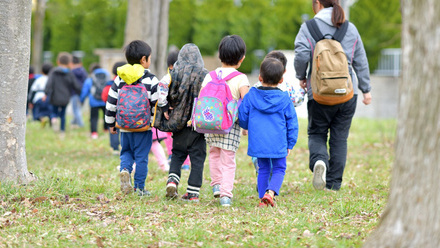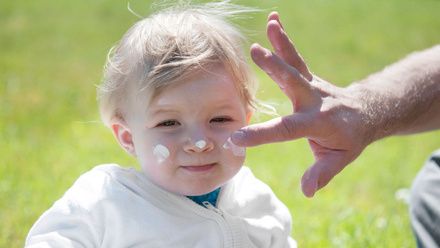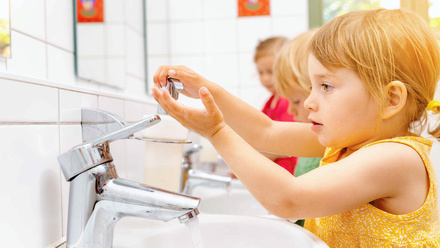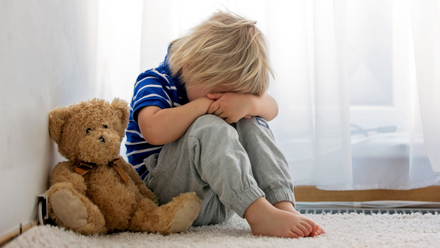How to respond to abuse in early education and care
The single most critical part of our role in early education and care is to keep all children safe, healthy and happy, which is why our duty to safeguard is held in the highest esteem when it comes to recruitment processes, training and monitoring practices.
There are lots of things we can do every day to ensure children are kept safe – from the conversations we have with parents and carers about daily routines to the risk assessments we create for activities in the playroom.
However, on occasion, we may notice something that gives us concern about a child’s welfare. Sadly, over half a million children every year suffer from abuse. It’s a vital aspect of our role and the most integral part of our duty of care to ensure all children are protected from harm. By championing their rights and remaining vigilant to concerns, we can play a significant part in changing lives.
In this article, we’ll take a look at what we can do when we have a safeguarding concern about a child and how to recognise when we need to act.
Why is it important for us to respond to safeguarding concerns?
Safeguarding is everyone’s responsibility. Unfortunately, that doesn’t always mean people act when they have a duty of care to. It is our own responsibility to know what to do if we feel something isn’t right, especially when it comes to protecting children from harm.
Every child has the right to feel safe, wanted and heard. For young children, finding the words to explain what is happening can be difficult. This makes the possibility of a disclosure – where a child directly tells about, or direct you to, something of concern – very unlikely. For this reason, it is imperative for us to be confident in our ability to recognise these concerns from observations we make and understand what to do to ensure steps are taken with the child’s best interests at heart.
What to do if you have a concern: top tips
Depending on your role, the type of setting you are in and the country you live in, the specific part you play within safeguarding will vary but, nonetheless, we all have a part in protecting children. This might mean you need to report to somebody with a particular title or fill out different paperwork depending on your concerns. All providers must follow the statutory guidance, but you must know about the legislation in your area and procedures specific to your role by asking your manager for the most direct and up to date information.
Trust your instincts
Making a judgement call on when it is appropriate to take a concern forward can be a difficult decision to make. It is necessary that we understand the implications of a safeguarding concern being raised in order to appreciate the true import of the role, but this should never stop us from acting where we feel it is needed.
Flagging a genuine concern can be the first step in helping to keep a child from harm. It’s okay to be wrong and misread a concern. Follow your instincts and raise a concern, no matter how small. You’ll not be at detriment if your worry turns out to be nothing but it’s far better to say something and be mistaken than disregard a genuine risk.
Don’t assume others will act
Practitioners should be proactive in sharing information as early as possible to help identify, assess and respond to risks or concerns about the safety and welfare of children. A family’s circumstances and the position of the child within them is never a black-and-white picture, so it’s important that any concern – no matter how small – is reported in order to build up a clearer image of the potential concerns.
The bystander effect is a psychological observation that highlights just how surprisingly long it can take for action to be taken to help someone in need, partly based on the assumption that others will act instead. In a variety of recent case reviews, it has become apparent that information sharing is a key area for improvement within wider safeguarding so it’s vital that we act with the integrity and proactivity needed.
Remain impartial
Being involved in safeguarding matters can be a highly emotional aspect of working in early education and care but, in order to do the job safely and effectively, all responses to safeguarding concerns need to be impartial. As with all the work we do within early education and care, the children are our priority and ensuring that we act in a responsible way that accommodates best to their needs is foremost to our role.
Key takeaways
- Safeguarding is everyone’s responsibility, but we must act on any concerns we have in order to build a bigger picture from a variety of perspectives. We cannot rely on or assume others will act for us instead.
- Children in early education and care are often too young to disclose problems themselves so it is important that professionals working with children are vigilant for observational concerns.
- It is always best to raise a concern and be mistaken than to be right about an issue but didn’t speak up. Trust your gut instinct and, if something feels wrong, follow your procedures to make it known – no matter how small it might seem.
Safeguarding is the most valuable part of our role in early education and care. Want to know more? Have a look at our other member resources around safeguarding or look into insightful training with NDNA today!






